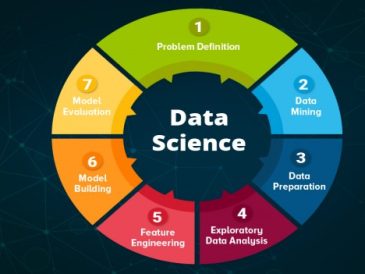The notions of coaching and mentoring have gained popularity. These techniques are crucial in improving people’s abilities, knowledge, and overall performance, making them vital. This blog will explore the many goals of coaching and mentoring, shining light on their unique objectives and the transforming influence they can have on individuals and organisations. Additonally, we will investigate the relevance of certificates such as Train the Trainer Certification and deconstruct the major differences between Coaching vs Mentoring.
Understanding Coaching
At its core, coaching is a purpose-driven interaction aimed at unlocking an individual’s potential and developing certain abilities. The coach, who is frequently a trained and qualified professional, serves as a guide and catalyst for personal and professional growth. Coaching’s primary purpose is to enable goal attainment, skill advancement, and performance enhancement.
- Goal Achievement: One of the key purposes of coaching is to assist people in defining and achieving their goals. Coaches help their clients create SMART (Specific, Measurable, Achievable, Relevant, Time-bound) objectives and give assistance to help them remain on track, whether it’s in the sphere of professional, leadership, or personal development.
- Skill Enhancement: Coaching seeks to improve certain skills or competencies as well. Coaches collaborate closely with their customers to identify growth areas and give specific feedback, techniques, and exercises to promote skill development.
- Performance Improvement: Individuals seek coaching to improve their overall performance. Coaching, whether in sports, business, or personal life, helps people improve their performance by overcoming hurdles, increasing confidence, and improving their tactics.
Train the Trainer Certification
The notion of “Train the Trainer Certification” is quite useful in the coaching field. This credential provides prospective coaches with the information and abilities to assist others effectively. It focuses on various topics, such as coaching strategies, communication skills, and a grasp of the psychology of motivation and behaviour change. Coaches who get this qualification can widen their sphere of influence, empower others, and contribute to personal and professional development on a greater scale.
Mentoring
Conversely, mentoring is a relationship-based method that focuses on developing prospective leaders and sharing knowledge. Mentors, frequently accomplished professionals, provide their mentees with advice, support, and vital insights as they navigate their career and personal growth journeys.
- Leadership Development: Mentoring strives to build future leaders via leadership development. Mentoring programmes are often used by organisations to find and nurture talented individuals for leadership roles. Mentors help their mentees by sharing their leadership experiences, thoughts, and viewpoints.
- Knowledge Transfer: Mentoring also serves as a mechanism of knowledge transmission. Experienced professionals pass on their experience to future generations, ensuring that significant institutional knowledge is preserved and expanded.
- Personal growth: Mentoring extends beyond professional growth. It might include personal development and well-being and providing mentees with a trusted confidant who gives emotional support and life counsel.
Coaching vs Mentoring
While coaching and mentoring have certain similarities, such as emphasising personal and professional development, their goals and tactics are quite different. Understanding these distinctions is critical for individuals seeking help and organisations putting these programmes in place.
- Focus: Coaching is primarily concerned with skill development and performance enhancement. It is often of shorter duration and employs a focused, task-oriented approach. Conversely, mentoring focuses on long-term personal and professional growth, which can last several years.
- Relationship Dynamics: The coach-client relationship is often professional and task-oriented in coaching. Mentoring is a more intimate connection, with mentors frequently functioning as role models and trusted advisers.
- Certification: While coaching frequently employs trained experts, mentoring is based on experience and skill. Mentors often have a wealth of information and are eager to share it.
- Goal Setting: With precise, quantifiable objectives, coaching places a significant focus on goal setting and success. While remaining goal-oriented, mentoring may include wider personal and career development talks.
Conclusion
Coaching and mentoring serve a variety of purposes, responding to a variety of needs and objectives. Whether you want to maximise your potential, improve certain abilities, or develop future leaders, these ways can help. Furthermore, credentials such as “Train the Trainer Certification” enable coaches to make a significant difference in the lives of others. Understanding the differences between coaching and mentoring is critical for people and organisations alike because it allows them to select the best method depending on their objectives and needs.




